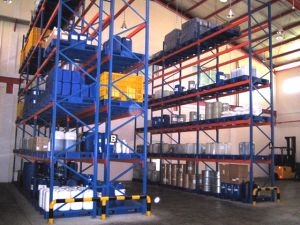Chicago Warehouse Carpenters Cite Wage Gap with GES' Competitors for Contract Strife

Several days after contract renewal talks broke down between Global Experience Specialists and the Chicago Regional Council of Carpenters Local 1027, the two entities have not come to a resolution over wage increase expectations.
June 4 article announcing talks breaking down: Contract Talks Break Down Between Chicago Warehouse Carpenters, GES
Talks broke off because of the union’s request for a 17-percent wage increase during a 4-year period and GES’ offer of a 15-percent increase during the same 4-year time period.
“While achieving solid agreements with GES’s competitors, talks with GES, a division of the corporate conglomerate Viad Corp., have stalled,” said Frank T. Libby, president/executive secretary-treasurer, Chicago Regional Council of Carpenters.
He added, “The union is negotiating for parity with other companies, securing fairness for its members, and the ability to continue to promote Chicago as a trade show leader.”
According to Libby, the crux of the issue for the union is $5.11 hourly rate savings that GES received, compared with its competition, during the last contract negotiations.
“This disparity was the result of concessions made by the union when GES purchased Exhibit Group in Roselle, Ill., and merged its operations,” he added.
Libby said the union’s goal during the recent contract renewal talks was to close that $5.11 gap.
“GES’s competitors have agreed to the very same terms that the carpenters union offered to GES and which GES has summarily and consistently rejected'” He added. “We simply cannot continue to allow GES to enjoy more favorable economic terms than its unionized competitors operating in the same industry.”
GES officials clarified that their company did not purchase Exhibitgroup/Giltspur. "We were both Viad companies and merged to form Global Experience Specialists," a spokesperson added.
GES' president Steve Moster said their ultimate goal is to stop rising costs.
"The fact that our competitors agreed to the union’s demands doesn’t make it right," he added. "We all need to stand together to do what’s right and keep costs down for the health of the industry."
Moster also said that if the union is concerned about creating parity "among GES and our competitors in Chicago", GES had made a proposal that would have brought parity on both wages and pension over time "and the union rejected it."
Libby said another issue at hand that led the union to ask for wage increases is the rising cost of health insurance.
“The substantial increases in healthcare costs have required the carpenters union to make significant adjustments to its major medical and pharmaceutical coverage over the last few years,” he added.
Libby said, “Fortunately, GES’s competitors, along with hundreds of signatory employers operating in Chicago, have agreed to contribute to the cost necessary to continue healthcare coverage for their employees.”
Moster said GES was aware of the rising costs of health care and the impact it has on everyone.
"However, because allocations for benefit plans are made by the union leadership and not the employer, healthcare has not been a focus of these negotiations," he added.
Moster said the 15-percent wage increase for four years that GES offered was generous, adding, “The consumer price index is at 2 percent. Despite this, the union is demanding a more than 4 percent per year increase. We rejected the union’s last, best and final offer in order to keep the overall cost of exhibiting down.”
GES’ current wage increase offer was in addition to a 14-percent wage increase that was agreed upon for the three-year contract that now has expired, according to GES officials.
Local 1027 are warehouse contractors who do not work onsite at shows. Besides exhibit fabrication, they typically build registration counters, charging stations and other elements for the showfloor.
The most recent contract between GES and the warehouse carpenters' union ended at Midnight, May 31.


Add new comment